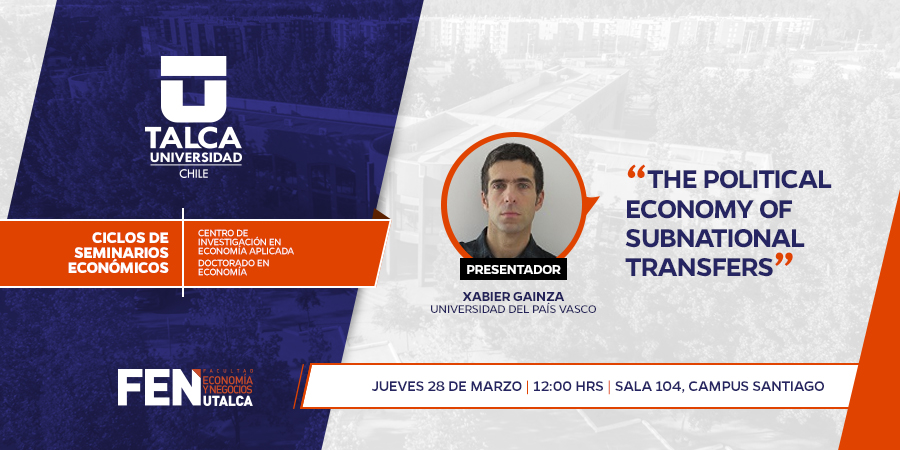Lugar Sala 104, Campus Santiago
Fecha y Hora 28 marzo 2019 12.00 a 13.00 hrs.
Autor: Xabier Gainza (Universidad del País Vasco)
Web: https://www.researchgate.net/profile/Xabier_Gainza2
Paper: The Political Economy of Subnational Transfers
Abstract:
In the last two decades, most Latin American countries have implemented intergovernmental transfer systems to improve the local fiscal capacity and reduce parochialism in the distribution of public goods. This article examines whether transfers to local governments in Brazil, Mexico, Colombia and Chile are allocated to obtain electoral advantage. The analysis covers two set of manipulations: grant fluctuations along the municipal electoral cycle and a partisan bias towards aligned municipalities. Regarding the latter, it is contested theoretically and empirically if targeting core or disputed municipalities yields the highest returns. In order to unveil what areas should result benefited, the paper displays a theory that weights credit-claiming and party strength. A large panel data set and a fixed effects estimation strategy founds evidence of both distortions and provides an empirical base to the theoretical predictions. In Mexico, strong national parties target disputed municipalities to extend partisan power. By contrast, in Brazil, Colombia and Chile, parties reaching national office have to rely on post-electoral coalitions and political machines are not strong enough to discipline local leaders. Consequently, empowered mayors can impose their electoral wishes and attract resources towards their constituents.
